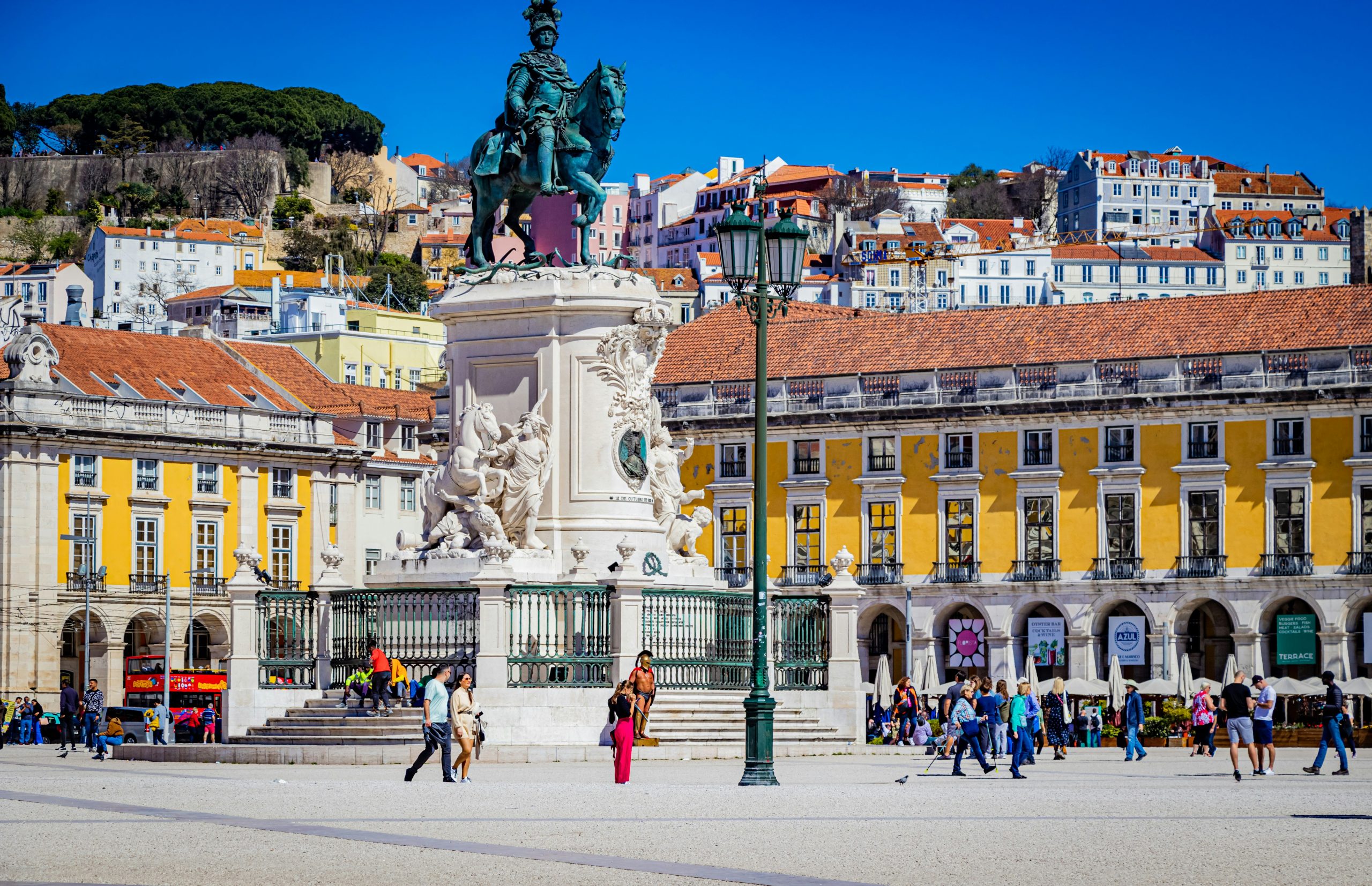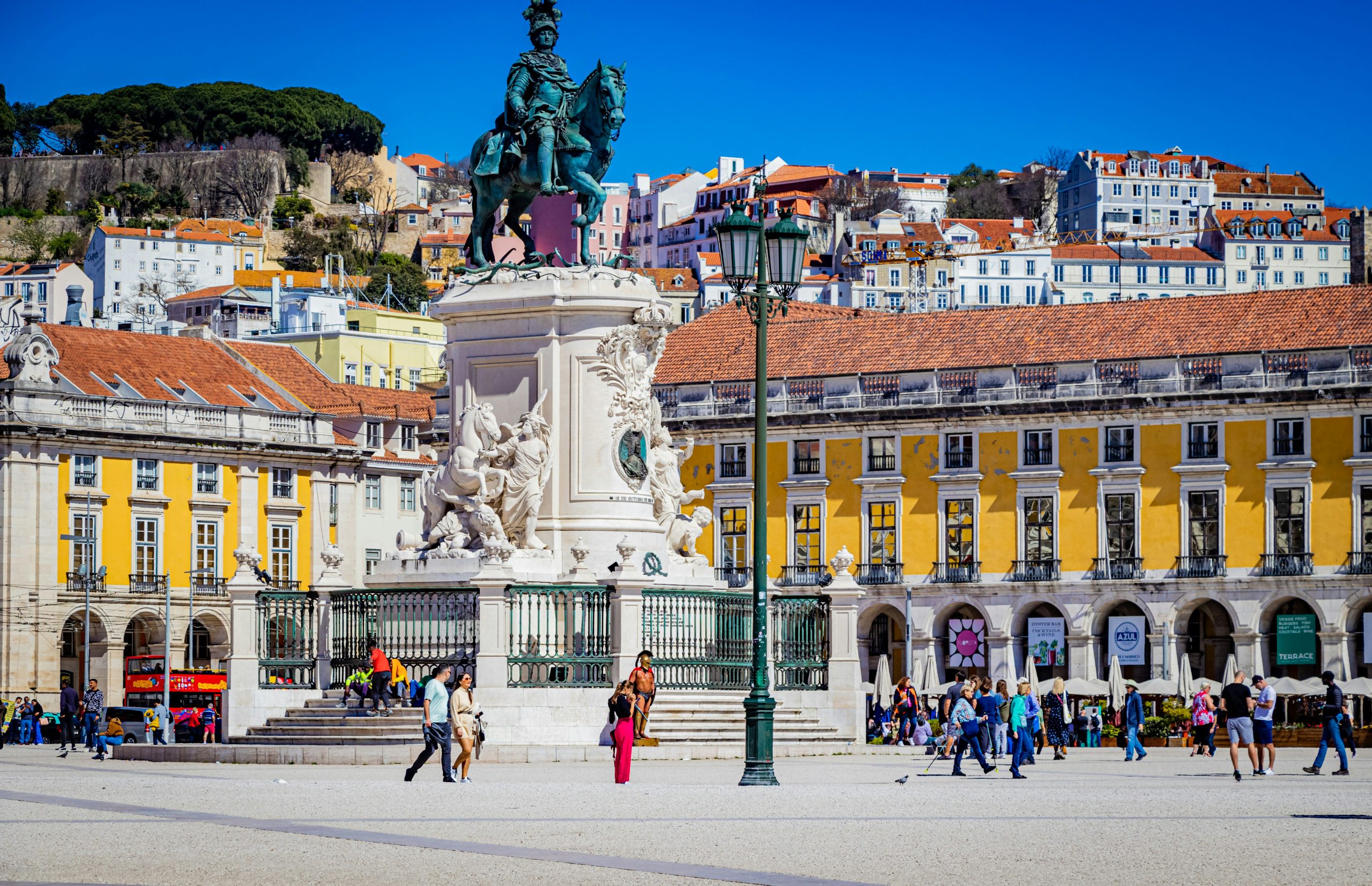For many investors, the Portugal Golden Visa begins as a strategic allocation into a regulated fund. For most families, it quickly becomes more than an investment.
The real Portugal Golden Visa benefits span quality of life, access to healthcare and education, and the security that comes with residency in a stable EU country.
This guide explains the tangible advantages, with current facts and clear guidance you can use.
1. Security and Stability
Portugal ranks among the world’s safest countries, placed 7th in the 2024 Global Peace Index.
For investors used to geopolitical or economic uncertainty, that ranking matters.
The program is governed by clear legislation, administered by AIMA, and anchored in EU legal standards.
The result is an environment where families can plan across five to ten years with confidence while staying responsive to policy updates under discussion.
2. Healthcare: Access, Quality, and Cost
Golden Visa holders can access Portugal’s public healthcare system (Serviço Nacional de Saúde) once they register their legal residence locally and obtain an SNS number.
Many families also maintain private health insurance for faster appointments and broader choice of providers.
Typical private plans range from roughly €20 to €150+ per adult per month, depending on age and coverage level.
Major hubs such as Lisbon, Cascais, and Porto offer hospitals and clinics that meet international standards, with English-speaking medical staff widely available.
Practical note: Secure private health insurance from the outset, then register locally to obtain your SNS number so you can access both systems as needed.
3. Education and Opportunity for the Next Generation
One of the most valuable Portugal Golden Visa benefits is access to education within Portugal and across the EU.
At school level, families can choose from a growing network of international schools following British, American, or IB curricula.
At university level, Portuguese institutions such as NOVA SBE and the University of Lisbon are well regarded, and residency opens EU-wide options without additional entry visas.
On fees, universities set their own policies, but a key point is often overlooked: after two years of legal residence in Portugal, students are generally no longer classified as “international” for tuition purposes and may pay national-rate fees.
For families planning ahead, this can meaningfully reduce long-term education costs.
4. Freedom of Movement
Residency provides visa-free movement across the 29-country Schengen Area for short stays.
With a valid Portuguese residence permit, you may visit other Schengen states for up to 90 days in any 180-day period.
For frequent business travelers, this removes friction and simplifies itineraries across Europe’s commercial centers.
After citizenship, mobility expands further, with visa-free or visa-on-arrival access to 190+ destinations, depending on the index used at the time.
5. Lifestyle Advantages That Compound Over Time
Portugal combines the climate and rhythm of Southern Europe with the infrastructure of a developed EU economy.
Key highlights include:
- Climate: the Algarve records 300+ sunny days per year; Lisbon and Porto are milder but temperate.
- Food and wellness: Mediterranean diet, strong local produce, and an active outdoor lifestyle.
- Communities: established international networks in Lisbon, Cascais, and the Algarve.
- Cost base: a comparatively affordable lifestyle relative to Western European peers.
Crucially, the physical-presence requirement stays light: plan for at least 14 days in each two-year permit period; many advisors also recommend averaging seven days per year.
This allows globally mobile families to maintain commitments elsewhere while building a base in Europe.
6. The Pathway to Citizenship (and What to Watch)
As of today, five years of legal residence is required to apply for Portuguese citizenship, subject to standard language (A2) and background requirements.
Processing timelines often push nationality decisions into years six to eight in practice.
Policymakers have discussed proposals to lengthen the residency period for naturalization, but these are not law.
Debate and review continue, and constitutional scholars have already highlighted limits on retroactive changes.
The prudent planning stance is simple: proceed under current rules while tracking developments with professional guidance.
Related article: The Citizenship Inheritance: How Golden Visa Decisions Echo Across Generations
7. Portfolio and Planning Considerations
The Golden Visa is not a deposit; it is an investment allocation with a residency outcome.
Treat it with the same discipline you would apply to private equity or infrastructure commitments.
Key items to plan for:
- Time horizon: fund strategies typically span six to eight years.
- Fees and liquidity: understand commitment terms, cash-flow timing, and exit mechanisms.
- Tax: coordinate with cross-border advisors to evaluate residence, domicile, and source-of-income effects.
- Documentation: bank compliance, certified translations, and renewal paperwork at years two and four.
Framed correctly, these factors are manageable.
The objective is to align the residency outcome with a diversified exposure to Portugal’s economy while keeping administrative overhead predictable.
8. Who Benefits Most from the Portugal Golden Visa
This pathway best suits:
- Families seeking EU access for education, healthcare, and long-term optionality.
- Investors who prefer a regulated, fund-based route over direct asset purchases.
- Globally mobile professionals who need a European base with minimal presence requirements.
- Individuals planning a pathway to EU citizenship over a five-to-ten-year horizon.
9. Practical Checklist for First-Time Applicants
- Confirm eligibility route: today, the central pathway is a €500,000 subscription in a qualifying, CMVM-supervised fund.
- Obtain a NIF and open a Portuguese bank account for compliant transfers.
- Prepare documentation: passports, police certificates, proof of funds, certified translations, and apostilles.
- File with AIMA and plan for biometrics in Portugal.
- Expect an average of 12–18 months from submission to residence cards, with some cases taking longer.
- Maintain the investment and meet presence requirements to renew at years two and four.
- Track your five-year residency window for a future citizenship application under the rules in force at that time.
Further reading: Portugal Golden Visa New Rules 2025: What Investors Need to Know
Conclusion
The most compelling Portugal Golden Visa benefits are not just financial.
They are structural and personal: safety, health, education, mobility, and a realistic path to EU citizenship.
For high-net-worth families, this is a strategy that balances optionality today with continuity for the next generation.
At Portugal Panorama, we help investors evaluate the broader value of the Portugal Golden Visa and structure a plan that fits long-term objectives.
If you are assessing whether this route aligns with your family’s priorities, we can guide you through the process and timelines step by step.
Contact: Portugal Panorama – Contact Us
FAQ
How long does it take to get residency through the Portugal Golden Visa?
Most applicants receive approval and residence cards within 12–18 months, depending on case volume and documentation.
Can my family access healthcare and education under the Golden Visa?
Yes. Once legally resident and registered, families can access Portugal’s public healthcare system and both public and international schools.
When can Golden Visa investors apply for citizenship?
After five years of legal residence, provided all requirements are met; discussions about longer timelines are ongoing but not yet law.





